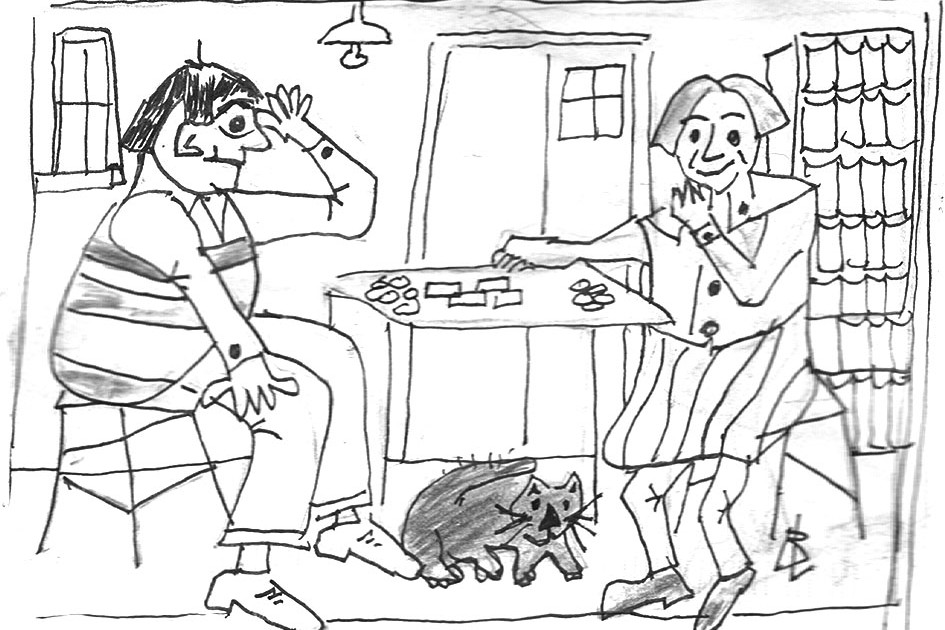General News
15 July, 2025
remember the good old days? — Or were they?
Going to the refrigerator to select an ice cream I pondered on how such an act was taken for granted.

The days of the ice chest with its limited ability to preserve food and inability to maintain a frozen temperature certainly was a limitation.
The ice chest relied on the delivery of a block of ice from the ice man which neatly fitted into a special compartment.
The ice chest had a limited ability to preserve most foods for any limited time.
On the farm with no ice delivery, some homes had kerosene driven fridges which had a limited capacity.
It is hard to believe that meat was hung in a meat safe under a convenient tree.
The meat had a rancid flavour and needed to be washed in salt water before cooking.
The water generally came from a corrugated iron tank which captured storm water from the roof.
This water was often tainted and full of “wrigglers” (juvenile mosquitoes). My grandfather put a drop of kerosene into the tank which had a limited effect but could be tasted.
Amazingly despite these limitations my brother preferred the taste. The use of copious garlic masked some of these problems.
The main cooking implement was a wood stove which was always alight with a huge black kettle permanently atop.
This was also a source of warmth in winter, but “furnace like” on a warm day.
The top of the stove was greased and used as a griller. Of course a constant supply of dried wood was stacked alongside.
A regular supply of wood was also necessary for the lounge room fireplace, the chip heater and the copper.
If you wished to have a bath the chip heater had to be set up and fired.
The scalding water was drained into the bath and then an appropriate mix of cold water was added to make the temperature bearable.
A permanent order of bathing was followed, in many cases as follows: father first, then mother followed the children in order of age, and lastly the baby. Thus we have the expression “don’t throw the baby out with the bathwater!”
The copper was perched alongside the concrete troughs next to the wringer, after removing the items from the boiling water they were rinsed in water coloured with a “blue-bag”.
The washing was hauled out to the clothes line. It consisted of sapling poles with a “Y” end with cord attached. Drying relied totally on the weather.
Washing of both the family members and the washing occurred once a week, even if it wasn’t necessary.
Often clothing items were worn for a week at a time. Remember personal deodorants weren’t in use at this time.
Studying French history at school it was revealed that the aristocracy never bathed as they considered it as a danger to their health.
The fire place in the living room was also used for cooking. Thick slices of high tin bread skewered with a fork toasted in front of the naked flames had a unique flavour when smothered in butter and plum jam.
In Carlton, in the days of my grandfather’s youth, street lighting was gas.
Every evening the gas lighter lit the lights with a long pole with a flint. In the morning they were extinguished.
Households had kerosene-filled lamps with a browning wick. Candles were used to move about and in the bedroom.
Beds had kapok mattresses and stiff linen sheets covered with an eiderdown quilt. Often the quilts were candlewick — a thick soft material.
In wintery nights hot water bottles were essential as the cold wind blew through the weatherboards.
Those who couldn’t afford a water bottle would wrap a hot brick in some towelling. Foot warmers were also in vogue.
The more affluent had fireplaces in their boudoirs.
Without a sewerage system, getting up to go to the toilet required a visit to the outdoor toilet or using the chamber pot, also known as “the jerry”.
As a teenager I was charged with the duty of emptying my elder grandfather’s jerry, a most onerous task.
After listening to the evening news on the radio, followed by the serials (particularly Biggles, and Dad & Dave), it was off to bed. On the weekends card games were the vogue.
Euchre was the most popular. Glasses of port wine cordial were drunk with glee.
Saturday afternoons were devoted to the children’s matinees. The serials, cartoons and cowboys were cheered and hissed when appropriate.
“Oil Can Harry” was Mighty Mouse’s adversary, while Donald Duck did battle with the Beagle Brothers.
On Saturday nights the parents dressed in their finest apparel and headed off to the movies.
The adults were fanatic devotees of Hollywood and saw movie stars as